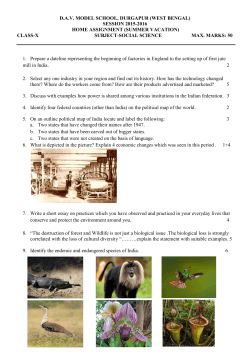
Special weekend for Hunslet fans - Grimsby & Cleethorpes Model
Special weekend for Hunslet fans To mark the 150th anniversary of the production of the first Hunslet locomotive, the society is organising a special weekend in September – with an open invitation to take part. The dates earmarked for the event are Saturday and Sunday, September 19 and 20 and arrangements are in the hands of the club’s vice-chairman, Greg Marsden, who first put forward the idea. Greg said: “We would like to invite anyone interested to bring any 5in or 7-1/4in gauge model that conforms to a Hunslet prototype – either standard or narrow gauge. In addition, spectators would be most welcome.” A limit will have to be placed on the number of locos that take part, but spread over two days there should be plenty of opportunity. However, to help keep the wheels turning smoothly and aid catering, it has been decided that those interested should request an application form. To be issued on a ‘first-come-first-served’ basis, these can be obtained from Greg at Amery House, Village Green, Tetney, Grimsby, Lincolnshire DN36 5NN. He can also be contacted by email at gregorymarsden@yahoo.co.uk. The event will be held at the society’s headquarters at Waltham Windmill, on Brigsley Road, Waltham, Grimsby DN37 0JZ. On the Sunday, there will also be a classic car rally on the windmill site and the sixsailed windmill itself will be operating and open to visitors. The Hunslet Engine Company was founded in 1864 at Jack Lane, Hunslet, Leeds, and its first engine, a standard gauge 0-6-0 saddle tank, ‘Linden’, was delivered to a railway civil engineering contractor the following year. The company went on to produce hundreds of locomotives for both home consumption and export worldwide, with customers as far flung as China, India, Chile, Bolivia and Australia, and built the last industrial steam engine in 1971 for export to Java. Although the Jack Lane premises were closed in 1995, the famous name of Hunslet lives on, under different ownership, the company continuing to build locomotives, mainly diesel, from shunters to 100-ton vehicles.
© Copyright 2025









